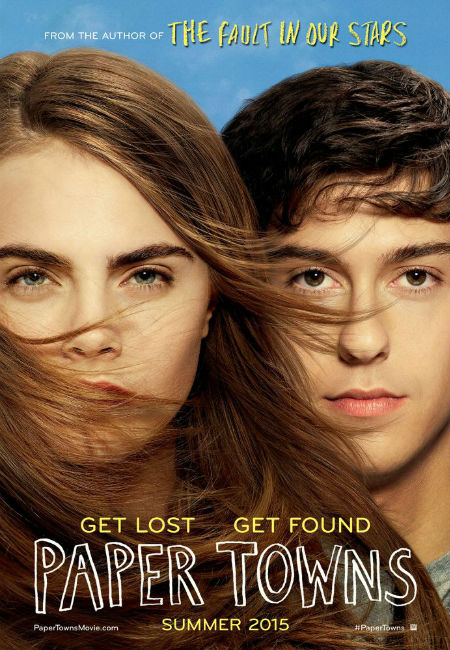A perennial complaint by readers of a beloved book brought to the big screen is that “The movie is nothing like the book!”
And while by necessity that is always going to be the case, some books make the transition to the big screen in far better shape than others.
Paper Towns by John Green, directed by Jake Schreier, is a great example of the former type of book.
Directed by Jake Schreier from a script by Scott Neustadter and Michael H. Weber, the same screenwriting team responsible for last year’s adaptation of another John Green novel The Fault in Our Stars, Paper Towns is a near faultless rendering of book to film that neatly preserves the spirit of the book while making the changes needed to allow it to become fully alive on screen.
This of course necessitates some reasonably large reassembling of the book’s narrative architecture with, for instance, the loving but overly-earnest psychologist parents of protagonist Quentin “Q” Jacobsen (Nat Wolff, a Green alum from The Fault in Our Stars), a worldly-wise if somewhat stodgy stuck in his ways disappearing almost altogether from the film version.
Neustadter and Weber do such an exemplary job of giving us a sense of Q’s inherent social conservatism at such a young age, partly a result of being a geeky only child, partly the by product of having very adult parents, that there presence is barely missed.
Similarly, many of the pleasingly long meandering passages from the book where Q is desperately trying to piece together what’s happened to the girl from across the road, Margot Roth Speigelman (Cara Delevingne), with whom he has been in love since age 9, are effectively compressed down into a few short scenes in the film where Q and his friends Radar (Justice Smith) and Ben (Austin Abrams) quickly piece together where the one time queen of Jefferson Park High School might be.
Not that everything part of the book is moved around like some sort of great big narrative jigsaw puzzle.
The opening chapters of the book where Q and Margot reconnect during one night of revenge-fueled driving around Orlando where fish are left in closets and cars, an eyebrow is quickly removed with depilatory cream, and Margot’s unfaithful boyfriend is forced to run naked from the home of the girl he is now not-so-secretly sleeping with, is largely kept gloriously and gleefully intact.
The camaraderie and connection between Q and Margot, it emerges isn’t so much dead as merely dormant and both Wolff and Delevigne do a superb job of playing two very different people finding out they may have more in common than they previously thought.
Certainly Q, long closed down to the unsettling possibilities of an unplanned life finds himself coming vibrantly and unexpectedly alive as he and Margot crisscross the “paper town” of Orlando – the term refers to pretend towns that mapmakers used to place in their cartographical creations so they could detect if someone has copied it without permission – to make wrong things right, and perhaps “right things wrong”.
Famously dismissive of people simply settling for a life in a paper town, which she seems to consider far less than even half a life, Margot awakens in Q not simply a renewed appreciation for life’s less suburban possibilities but an understanding that most of us don’t know people as well as we think we do.
Often captive to our own worldviews and assumptions, we, like Q who by dying weeks of high school when the book takes place has fashioned Margot into an impossibly fabulous creation she is nothing like in real life, nor wants to be despite her queen bee status, often shape people into what we think they are, not who they actually are.
